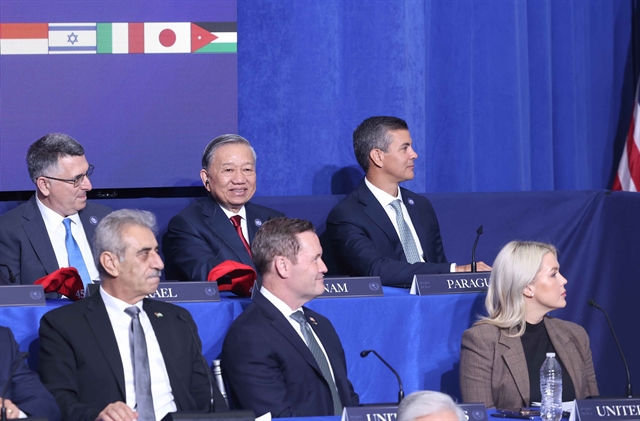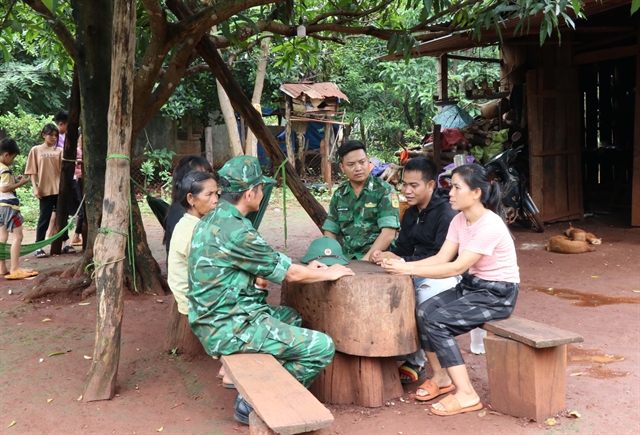 Politics & Law
Politics & Law

 |
| The Gia Lai Province Border Guards visit human trafficking victims after being rescued in Kloong Village, Ia O Commune. — VNA/VNS Photo Hồng Điệp |
HÀ NỘI — The Committee for Judicial Affairs of the National Assembly (NA) convened an expounding session on enforcing the human trafficking law to discuss its implementation and future strategy.
During the opening of the session on Monday, the committee's chairwoman, Lê Thị Nga, stated that the prevention and control of human trafficking had recorded encouraging outcomes in ensuring social order and security.
Lately, human trafficking crimes had demonstrated an upward trend, becoming more intricate as criminal techniques were progressively sophisticated. As well as women and children, men, infants, and fetuses had also been identified as victims.
Additionally, in certain localities, adherence to the human trafficking law was inadequate. The detection of human trafficking crimes and community reintegration assistance for trafficked victims remained limited.
The committee’s survey in some localities this year showed that the problems were because several provisions in the Law on Human Trafficking Prevention and Control were no longer compatible with other documents.
"This situation requires an accurate assessment of the law on human trafficking prevention and control implementation nationwide, the current state of crime in this field, and clarifying responsibilities of concerned agencies, thereby having solutions," said Nga.
Deputy chairwoman of the committee, Mai Thị Phương Hoa, said that in 2018-22, the country detected 440 human trafficking cases with 876 violators and 1,240 victims.
The Ministry of Public Security prosecuted 386 cases, with 808 accused. Authorities rescued 352 victims.
However, the number of human trafficking crimes uncovered, investigated and handled were still small compared to the actual situation.
International cooperation in human trafficking prevention and control needed to be undertaken by all levels and sectors, said Hoa.
Bilateral agreements on human trafficking prevention and combat between Việt Nam and other countries were well implemented.
To enhance the effectiveness of human trafficking prevention and control, delegates at the session proposed the Ministry of Public Security to coordinate with concerned ministries to urgently complete the draft of the amended Law on Human Trafficking Prevention and Control and submit it to the NA.
They proposed the Government promote education on the issue, which should focus on people with high risks of being trafficked.
Anti-trafficking content should be inserted into socio-economic development programmes.
Concerned organisations must strengthen the management and inspection of service establishments with potential risks of human trafficking.
Localities must strengthen management on borders, sea and border gates to attack human trafficking crimes and further strengthen responsibility in rescuing victims.
The Ministry of Labour, Invalids and Social Affairs and the Ministry of Justice should tighten management and inspection on sending people to work abroad, allowing child adoptions or marriages with foreigners, and supporting victims more effectively, especially community re-integration.
People's councils should focus on integrating human trafficking prevention and control into local socio-economic development resolutions. — VNS




